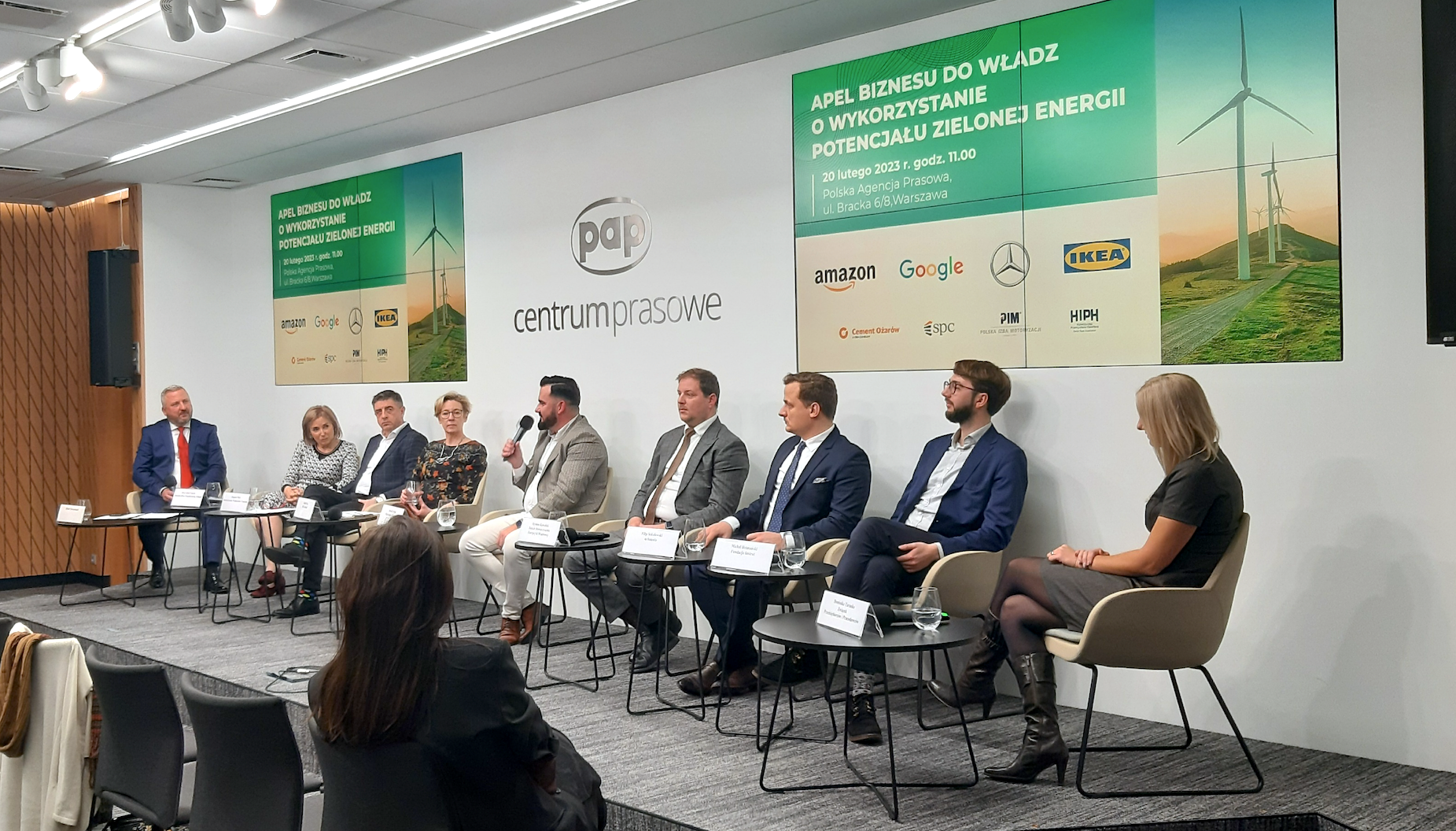Representatives of global companies and corporations operating in Poland called the government, including Prime Minister Mateusz Morawiecki, to exploit the potential of green energy to foster further business growth and create new jobs in Poland. Google, Mercedes, IKEA, AMAZON are plain: “Without green energy Polish economy is exposed to loss of competitiveness and market attractiveness. The change of the minimum distance from 500 to 700 metres thwarts wind energy potential. For our companies, investments are a priority in the markets where green electricity is easily accessible.”
Representatives of large companies from many sectors of the economy issues a call to the Prime Ministers and the government, requesting them to “exploit the potential of green energy to foster further business growth and create new jobs in Poland”, emphasizing that “green energy is not just a new trend — it is a necessity”. “To effectively decrease environmental impact and maintain competitiveness, for our companies, investments are a priority in the markets where green electricity is easily accessible,” the letter to the Polish government stated.
The call to the government included precise calculations. “The change of the minimum distance from 500 to 700 metres substantially limits onshore wind potential in the coming decade, leading to insufficient volume of green electricity in the grid,” the open letter stated.
“Together we may guarantee that wind energy development in Poland will be attractive to business, municipalities and local communities alike. We believe that new wind capacity will substantially contribute to ensuring energy security, lower bills, and new jobs for Polish citizens. Let us work together to make it happen,” representatives of large business called the Polish authorities.
“Green transition is not a dream,” confirmed Ewa Łabno-Falęcka from Mercedes-Benz Manufacturing Poland, and added that “this is not a trend, but a lifestyle”. “We are not saving the planet — she’ll take care of herself. We are saving ourselves,”, Ewa Łabno-Falęcka added, stating that soon Mercedes will open a plant in Jaworze (three times the size of the plant already existing there) “which will use only RES electricity”.
All experts taking part in a press conference organised in the PAP Press Centre emphasized that “Poland has already made a significant progress in energy transition, which is still happening”. The fact was also noted by signatories of the call, who emphasized that “the recent legislative changes applicable to onshore wind will unleash the full potential of green capacity stemming from wind projects. This is one of the key elements required for our investment decisions,” the call states.
Large corporations care for a “green economy”. Only a reasonable legal framework can ensure dynamic growth of businesses in the Polish market. “Investments in green energy are not a trend, it’s a profitable business. By 2025 one hundred percent of electricity in all IKEA facilities in Poland is to come from RES. By 2030 we want to produce as much green electricity as we consume along the entire supply chain,” Anita Ryng from IKEA Retail announced.
IKEA alone invested PLN 1.8 billion in the “green energy” sector in Poland. Other companies invest similar sums. The signatories of the call to Prime Minister Morawiecki state that “we see a vast potential for growth of our businesses in Central and Eastern Europe, with Poland being a particularly interesting market to us. Together we would like to have actual impact on the consolidation of Poland’s position as a key market for our future investments”.
However, representatives of large business in Poland see the threats, including those stemming from reckless legislative changes applicable to renewable energy. “Without green energy there is no future for the cement industry.Construction of large installations based on RES electricity will not be possible,” warned Zbigniew Pilch from the Polish Cement Association, who emphasized that Polish cement mills already underwent substantial transition to RES electricity. “Therefore, we call upon the authorities: we will not be competitive in Europe if we will not maintain the applicable law,” Zbigniew Pilch stated.
Information source: PAP MediaRoom

